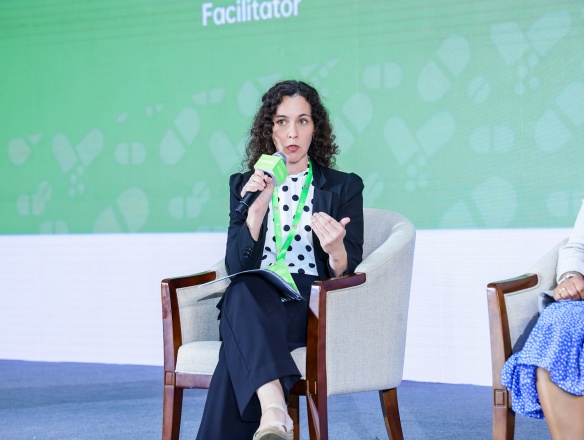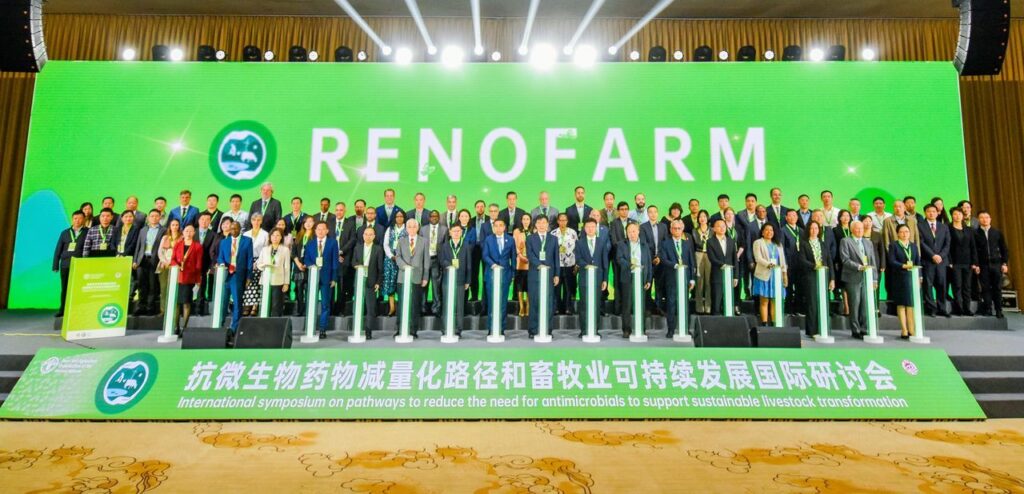In April, Dr. Kristina Osbjer, Senior Science Advisor in veterinary sciences at ICARS, travelled to China to participate in the RENOFARM (Reduce the Need for Antimicrobials on Farms for Sustainable Agrifood Systems Transformation) launch and engage with key stakeholders, aiming to foster future collaborations to address antimicrobial resistance in the agrifood sector. This mission was crucial for gaining insights into the RENOFARM initiative and exploring how ICARS could contribute. RENOFARM emphasizes farm-level interventions through its 5G approach: Good Health Services, Good Production Practices, Good Alternatives, Good Connection, and Good Incentives.
Addressing Antimicrobial Resistance in China’s Agrifood Sector
During meetings, Dr. Osbjer gained a deeper understanding of the antimicrobial use and resistance (AMU/R) situation in China’s agrifood sector. As a major food producer with significant outputs in pig, aquaculture, and chicken production, China is stepping up monitoring, regulations, and incentives for AMR mitigation. A pilot study is for example ongoing on more than 8000 pig, poultry and dairy farms across China with a certification of farms that produce meat with reduced veterinary antimicrobial use.

RENOFARM Launch and Expert Advisory Group Meeting
Dr. Osbjer’s mission began in Rongchang, where she attended the RENOFARM Expert Advisory Group meeting. She visited companies involved in vaccine production, pharmaceutical manufacturing, and big data analysis on pig production and health. These visits set the stage for the RENOFARM launch, where Dr. Osbjer presented ICARS’ implementation and intervention research (IIR) in Low- and Middle-Income Countries (LMICs) to reduce antimicrobial use on farms. Her participation included panel discussions and moderating the quadripartite session.
ICARS also had productive discussions with key representatives from the Ministry of Agriculture and Rural Affairs (MARA) and potential partners in Asia and beyond.

Meetings in Beijing
The latter part of Dr. Osbjer’s mission involved a series of meetings and a mini-seminar moderated by the Embassy of Denmark in Beijing. This provided an opportunity to connect with representatives from the EU Commission, the China Academy for Agriculture Science (CAAS), and the U.S., Netherlands, Sweden, Japan, and Canada Embassies. These meetings were essential for exploring the intricacies of establishing collaborative projects with Chinese ministries and institutions.
ICARS’ involvement in the RENOFARM launch and subsequent meetings with stakeholders laid the foundation for future partnerships to promote sustainable agrifood systems and reduce antimicrobial use. Dr Thanawat Tiensin, Chief Veterinarian at FAO, notes that
“The FAO RENOFARM initiative is open to all and is leveraging participation of partners such as ICARS who are already working with antimicrobial use on farms. It is crucial for scaling up and mobilizing support for a bottom-up approach to sustainable livestock transformation.”


